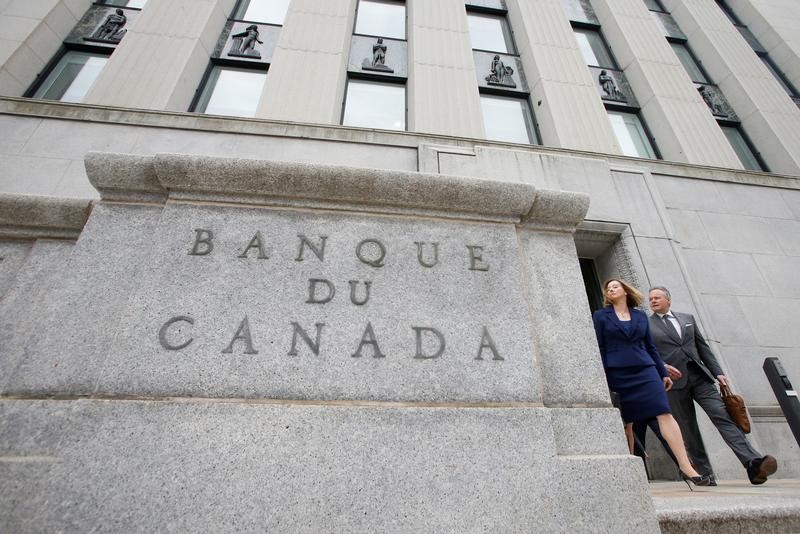* Says Bank of Canada not overly optimistic with growth forecasts
* Volatile markets signs of life returning to normal
* Ending U.S. - China trade war would be big confidence boost
By Marc Jones and Tom Finn
LONDON, Nov 5 (Reuters) - Market volatility, a stronger U.S. dollar and higher yields for long-term bonds are signs that markets are becoming more normal, rather than an indication of trouble, Bank of Canada Governor Stephen Poloz said on Monday.
Poloz, speaking to a business audience, pushed back against critics who complain that economic forecasts - including those from the Canadian central bank - are too optimistic given recent equity market turbulence.
As banks start to withdraw a decade's worth of stimulus, long-term bond yields are rising, equity markets are returning to a more normal level of volatility and the U.S. dollar is strengthening to reflect the booming American economy, he said.
"These characteristics do not point to a gloomy economic outlook by any means - rather, they are welcome symptoms of normalization," Poloz said in his speech.
Speaking to reporters later, he described the global economy as operating close to capacity and said it was bound to moderate slightly over the next year or two.
"That may be interpreted by markets as some major shift. I think that's incorrect, it's just a normal moderation to a steady state growth rate," he said.
Poloz reiterated the Bank of Canada's message that more interest rate hikes would be needed. The central bank has raised rates five times in the last 15 months after slashing them to almost zero to help cope with the Great Recession.
"Our assessment is that we're normalizing at exactly the right pace," he said. Pressed about the bank's forecasts he said "we're not particularly optimistic ... but at the same time we don't interpret one or two data points as meaning we're falling off a cliff."
Poloz noted that long-term bond yields were starting to rise as stimulus was removed, which he said could reflect the fact "the market is becoming two-sided again" as central banks shifted interest rate risk back into the marketplace.
Poloz acknowledged that recent plunges in equity markets had prompted some commentators to question "whether many economic forecasts, including ours, are too rosy".
In fact, as rates go up and liquidity becomes more expensive, "it is only natural to expect more volatility in stock prices as this support is removed," he added.
"If investors are coming round to the view that expected earnings ... need to be discounted by higher interest rates, it naturally lowers the price they are prepared to pay for a given stock," Poloz said.
At the same time he said that sentiment could get a sizable lift if there were a resolution in U.S.-China trade tensions.
"I say tensions but that is a bit of a polite word when they are using live ammo," he said. "If that gets resolved that will be a massive injection of good will and of positive animal spirits."
